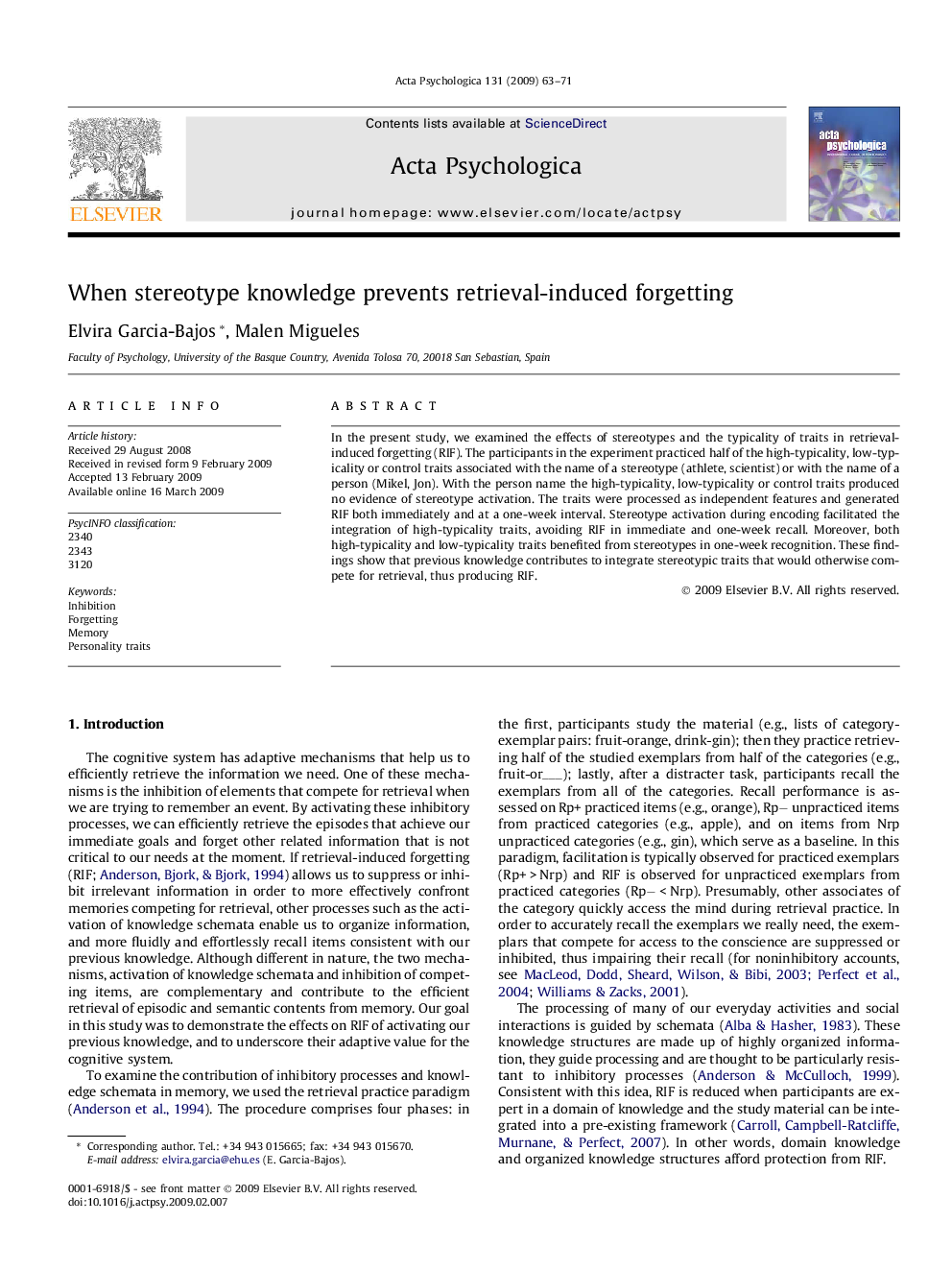| کد مقاله | کد نشریه | سال انتشار | مقاله انگلیسی | نسخه تمام متن |
|---|---|---|---|---|
| 920337 | 920280 | 2009 | 9 صفحه PDF | دانلود رایگان |

In the present study, we examined the effects of stereotypes and the typicality of traits in retrieval-induced forgetting (RIF). The participants in the experiment practiced half of the high-typicality, low-typicality or control traits associated with the name of a stereotype (athlete, scientist) or with the name of a person (Mikel, Jon). With the person name the high-typicality, low-typicality or control traits produced no evidence of stereotype activation. The traits were processed as independent features and generated RIF both immediately and at a one-week interval. Stereotype activation during encoding facilitated the integration of high-typicality traits, avoiding RIF in immediate and one-week recall. Moreover, both high-typicality and low-typicality traits benefited from stereotypes in one-week recognition. These findings show that previous knowledge contributes to integrate stereotypic traits that would otherwise compete for retrieval, thus producing RIF.
Journal: Acta Psychologica - Volume 131, Issue 1, May 2009, Pages 63–71